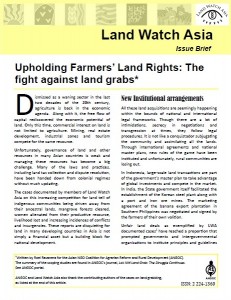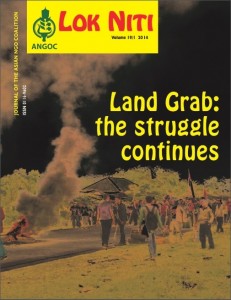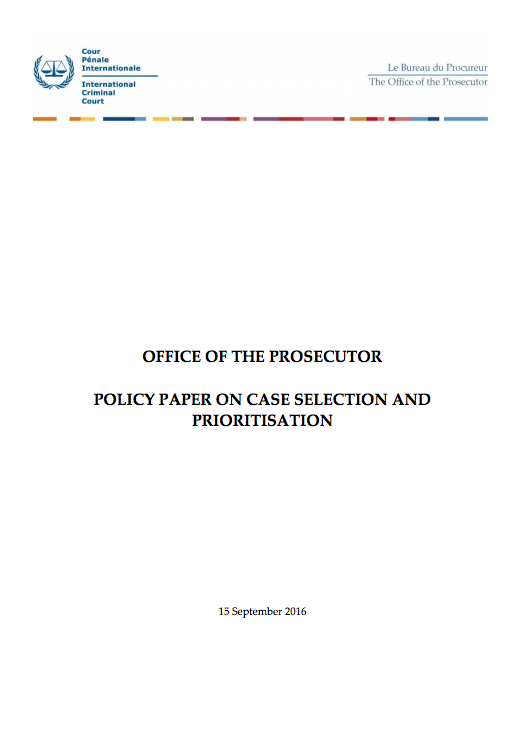Land grab issue brief: Upholding Farmers’ Land Rights against Land Grabs
This issue brief highlights the roots of land grabbing experienced in the aggrieved communities in seven countries. It also features the importance of advanced smallholder agriculture and local food industry, broadened land rights movement, and strengthened land governance in promoting the rights of the farmers.





